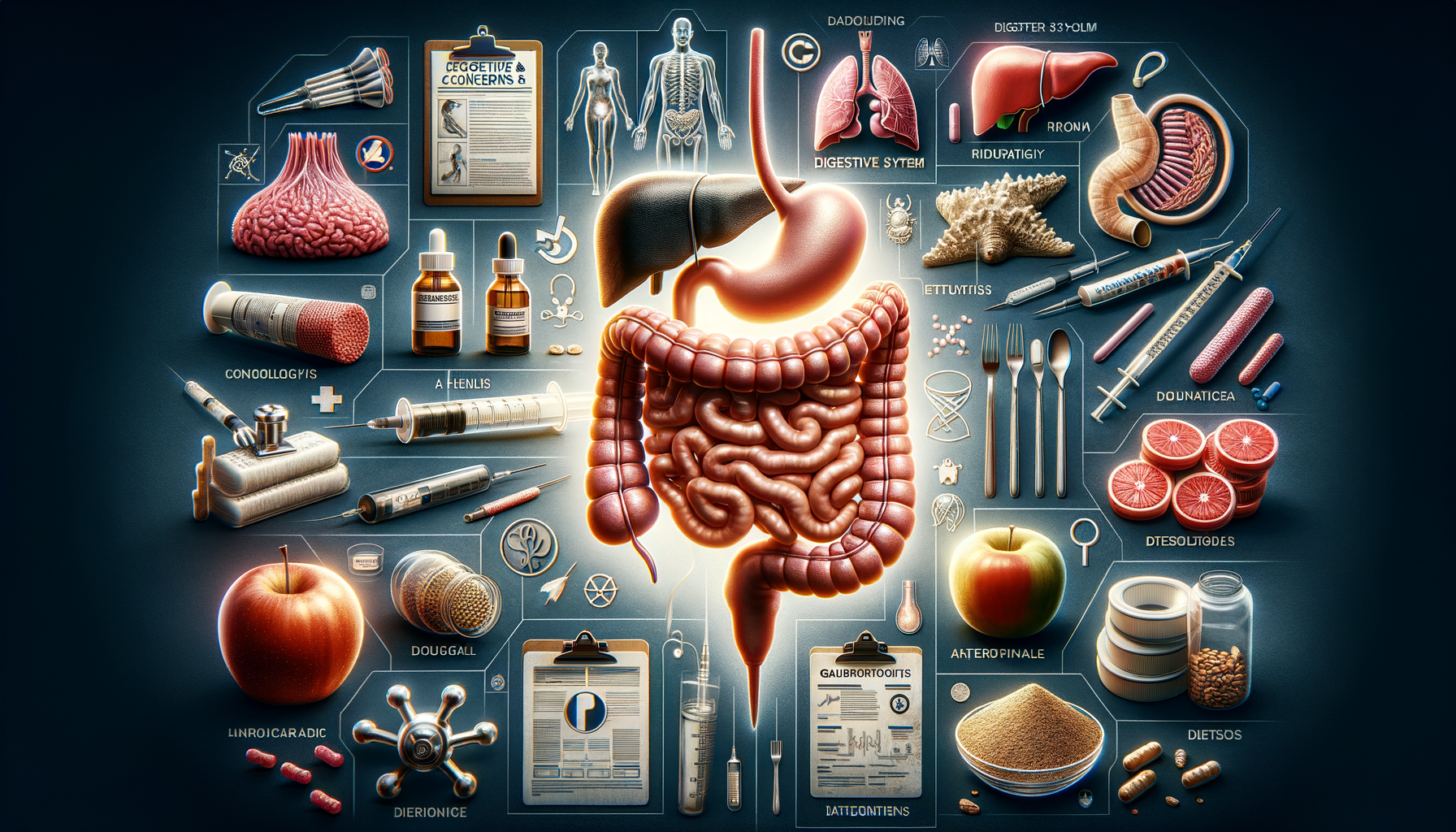Understanding Crohn’s Disease: An Overview
Crohn’s disease is a chronic inflammatory condition of the gastrointestinal tract, classified under inflammatory bowel diseases (IBD). It can affect any part of the digestive tract, from the mouth to the anus, but most commonly impacts the end of the small intestine and the beginning of the colon. This condition is characterized by periods of remission and flare-ups, making it unpredictable and challenging for those affected.
The exact cause of Crohn’s disease remains unknown, but it is believed to result from a combination of genetic, environmental, and immunological factors. The immune system’s abnormal response to intestinal bacteria is thought to play a significant role. Unlike other conditions, Crohn’s disease doesn’t have a one-size-fits-all treatment, as the symptoms and severity can vary greatly among individuals.
Common symptoms include persistent diarrhea, abdominal pain, rectal bleeding, weight loss, and fatigue. These symptoms can significantly impact a person’s quality of life, leading to complications such as malnutrition and anemia. Understanding the disease’s nature is crucial for managing its symptoms effectively and improving the patient’s overall well-being.
Diagnosis and Challenges in Identifying Crohn’s Disease
Diagnosing Crohn’s disease can be a complex process due to its similarity to other gastrointestinal disorders and the variability of symptoms. Physicians typically employ a combination of diagnostic tests, including blood tests, stool tests, endoscopy, colonoscopy, and imaging studies like CT scans or MRI, to confirm the presence of the disease.
One of the primary challenges in diagnosing Crohn’s disease is its overlapping symptoms with other conditions such as ulcerative colitis and irritable bowel syndrome (IBS). This overlap can lead to misdiagnosis or delays in receiving the correct treatment. Moreover, the intermittent nature of symptoms can complicate the diagnostic process, as patients may not experience symptoms during medical evaluations.
Early diagnosis is essential to prevent complications and manage the disease effectively. Delayed diagnosis can lead to more severe symptoms and complications such as strictures, fistulas, and abscesses. Therefore, a thorough and timely evaluation by a healthcare professional is critical for anyone experiencing persistent gastrointestinal symptoms.
Treatment Approaches: Managing Symptoms and Improving Quality of Life
While there is no cure for Crohn’s disease, various treatment strategies aim to reduce inflammation, manage symptoms, and improve the patient’s quality of life. Treatment plans are highly individualized, considering the disease’s severity, location, and the patient’s overall health.
Medications are the cornerstone of Crohn’s disease management, with options including:
- Aminosalicylates (5-ASAs): Used to reduce inflammation in mild cases.
- Corticosteroids: Prescribed for short-term relief during flare-ups.
- Immunomodulators: Help reduce immune system activity to prevent inflammation.
- Biologic therapies: Target specific proteins involved in inflammation.
In addition to medication, lifestyle modifications play a crucial role in managing Crohn’s disease. Dietary adjustments, such as avoiding trigger foods and maintaining a balanced diet, can help alleviate symptoms. Regular exercise, stress management techniques, and adequate rest are also beneficial in managing the disease.
In severe cases, surgery may be necessary to remove damaged portions of the digestive tract or to address complications. However, surgery is not a cure and is usually considered when other treatments have failed.
The Role of Diet and Nutrition in Crohn’s Disease Management
Diet and nutrition are pivotal in managing Crohn’s disease, as certain foods can exacerbate symptoms during flare-ups. While there is no specific diet for Crohn’s disease, identifying and avoiding trigger foods is essential for symptom management.
Common dietary triggers include high-fiber foods, dairy products, spicy foods, and alcohol. Patients are often advised to keep a food diary to track their symptoms and identify foods that may worsen their condition. A well-balanced diet that ensures adequate nutrient intake is crucial, as malnutrition is a common concern for those with Crohn’s disease.
During flare-ups, a low-residue diet may be recommended to reduce bowel movements and alleviate symptoms. This diet involves limiting fiber intake and avoiding foods that are difficult to digest. In some cases, nutritional supplements or enteral nutrition may be necessary to ensure proper nutrition.
Working with a registered dietitian can provide valuable guidance in creating a personalized nutrition plan that supports health and minimizes symptoms. This collaborative approach ensures that dietary choices contribute positively to the overall management of Crohn’s disease.
Living with Crohn’s Disease: Emotional and Psychological Aspects
Crohn’s disease is not only a physical condition but also has significant emotional and psychological impacts. The unpredictable nature of the disease, coupled with the chronic pain and discomfort, can lead to feelings of anxiety, depression, and social isolation.
Managing the emotional aspects of Crohn’s disease is just as important as addressing the physical symptoms. Support from family, friends, and healthcare professionals can provide a crucial safety net. Joining support groups or online communities can also offer a sense of belonging and understanding, as individuals share experiences and coping strategies.
Psychological therapies, such as cognitive-behavioral therapy (CBT), can be beneficial in managing anxiety and depression associated with Crohn’s disease. Mindfulness practices and stress-reduction techniques, such as yoga and meditation, can further enhance emotional well-being.
Maintaining a positive outlook and focusing on what can be controlled, such as adhering to treatment plans and making healthy lifestyle choices, can empower individuals living with Crohn’s disease. With the right support and strategies, it is possible to lead a fulfilling life despite the challenges posed by the condition.




Leave a Reply